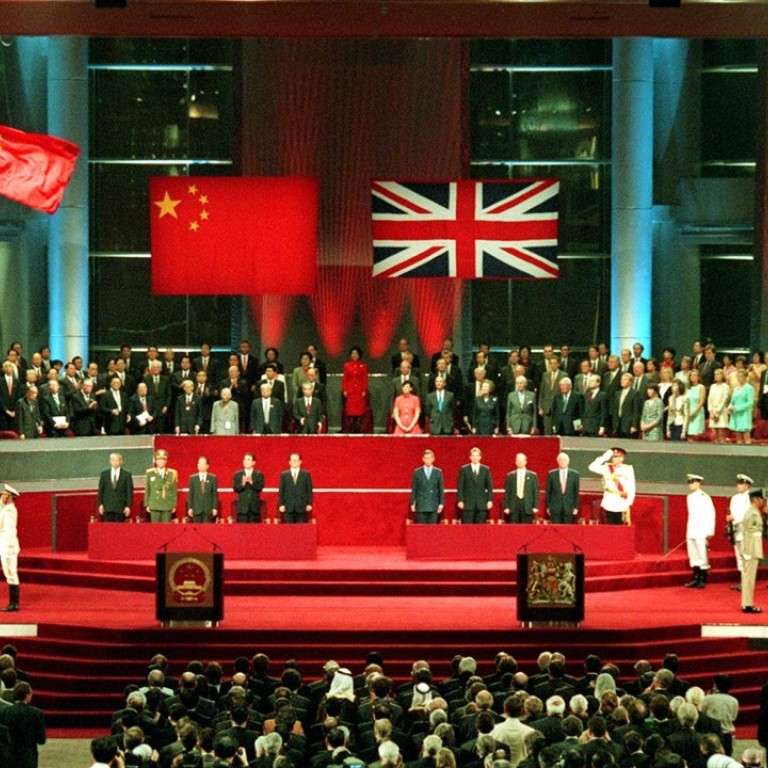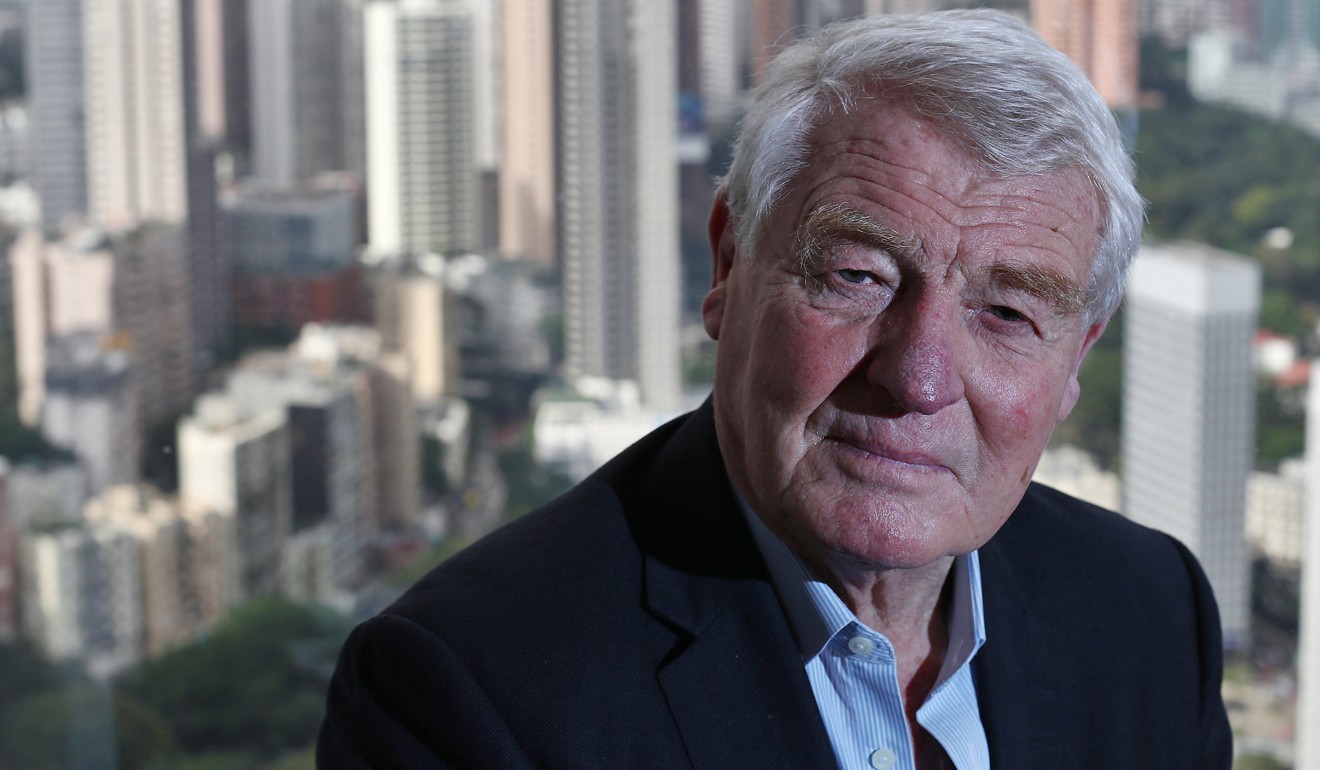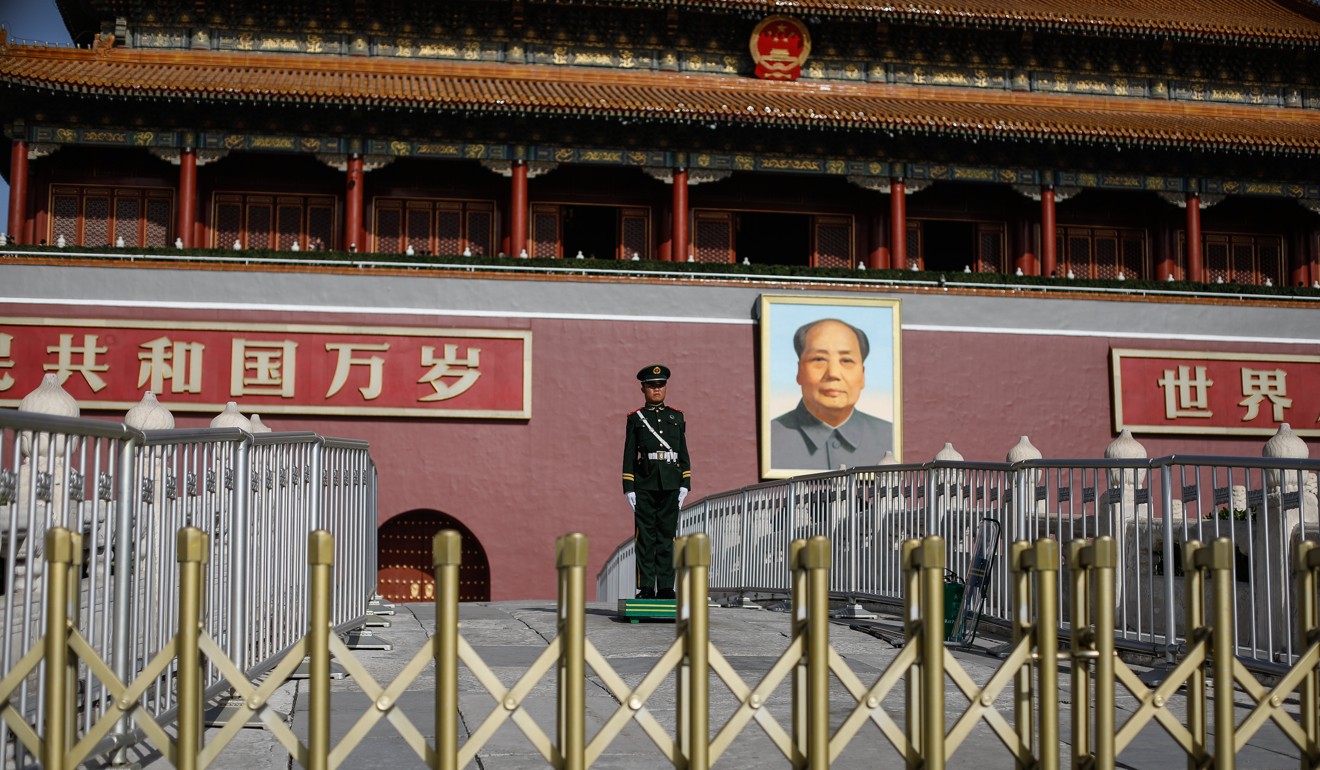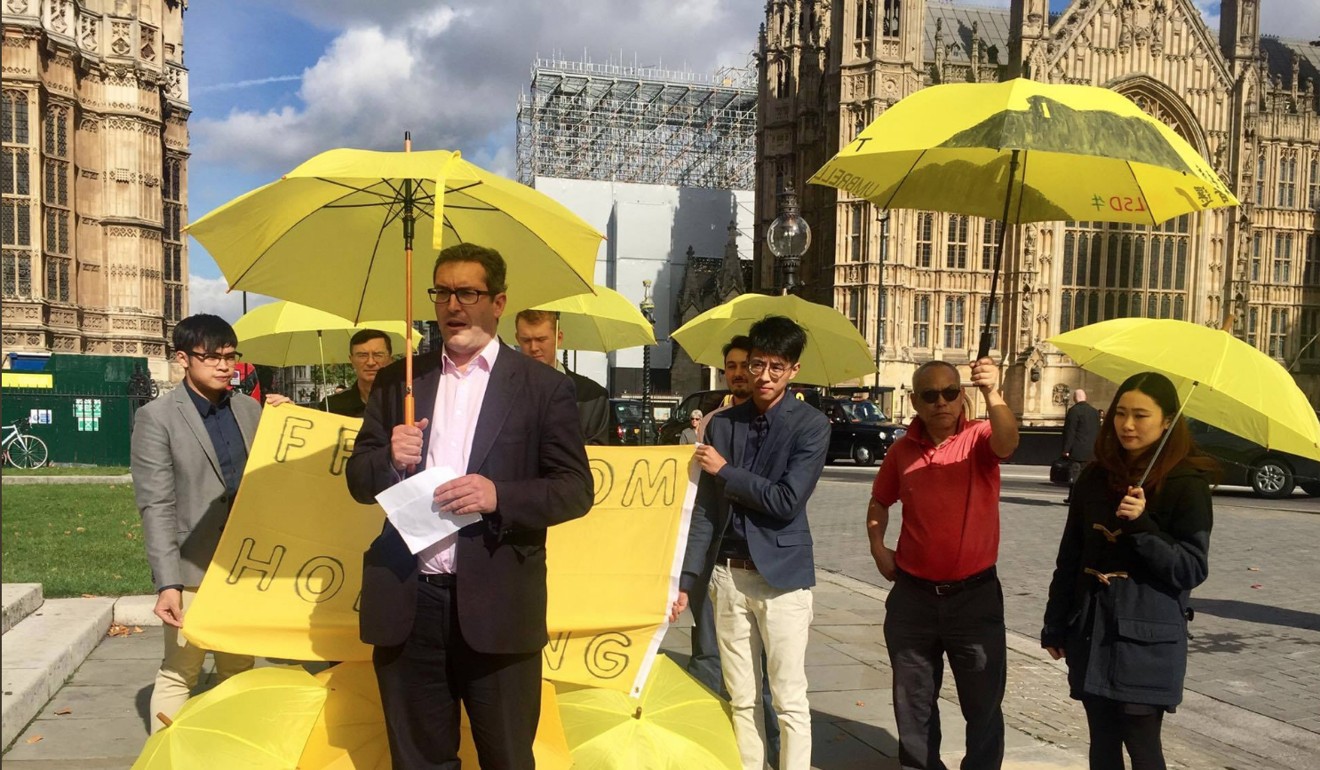
Its sense of duty aside, can Britain play a relevant role in Hong Kong’s efforts to preserve its autonomy?
Pro-democracy activists believe Britain has an obligation to defend Hong Kong’s freedoms. But given the political realities, there’s little it can actually do for its former colony
On December 11, two months to the day he was denied entry into Hong Kong, British human rights campaigner Benedict Rogers plans to use his new-found infamy to fight a cause on the city’s behalf.
The former resident of Hong Kong will launch a UK-based initiative to monitor what he claims are “worsening” human rights, freedoms and rule of law in the place he last called home in 2002.
Rogers aims to lobby the British government and the international community against any violations of the rights and freedoms enshrined in the Sino-British Joint Declaration, signed in 1984 ahead of Hong Kong’s handover to China in 1997, and the Basic Law, the city’s mini-constitution.
Hong Kong Watch, the name of his new outfit, has so far secured support from several UK foreign policy heavyweights and politicians of different stripes, including political grandee Paddy Ashdown, a former leader of the Liberal Democrat party.
Barred UK activist’s new Hong Kong Watch group draws support from British foreign policy heavyweights
He said: “Britain does need to understand that it has a very special duty to Hong Kong and it needs to fulfil that duty.
“We have a legal duty. We have a moral duty. We have a duty of friendship.”
He added that even though Britain was in the midst of negotiating Brexit and needed international trade options to replace the European Union, sacrificing Hong Kong in the process of doing more business with the mainland would be “disgraceful” and unlikely.

Rogers and Ashdown’s comments have sparked debate in the city on what role Britain can actually play in Hong Kong affairs, given that the city’s fortunes are inextricably tied to the mainland and not to its former colonial master.
Geopolitical realities and Britain’s own interests would also limit the scope of its influence, with its views likely seen merely as the grumblings of a nation clinging onto its past.
But some Hongkongers in the pro-democracy camp have welcomed Britain’s recent revival of interest in the city it once ruled for 150 years. It’s time Britain does more to speak up for Hong Kong’s rights and interests, they have said.
Obligation or interference?
Thus, the treaty underscored the “one country, two systems model” for the city’s governance, and affirmed rights such as the freedom of speech and freedom to peacefully assemble.
Documents declassified in December 2014 revealed that then British prime minister Margaret Thatcher had promised Hong Kong’s political elite that the government would raise any breach of the Joint Declaration with Beijing.
While relations between China and Britain were respectable after the treaty was signed, the five-year term of the city’s last colonial governor, Chris Patten, was marked by tension.
Patten’s efforts to accelerate political reform in the city and give more Hongkongers political franchise before 1997 drew distrust and sharp rebuke from Beijing, which effectively wiped out his reforms to revert to the status quo.
Explained: how Hong Kong’s Legislative Council has evolved
By handover, Britain had a huge financial stake in Hong Kong with an inward direct investment of HK$184.3 billion – making it the top foreign investor at the time. Ruffling too many feathers was not in the interest of businessmen, both Hongkongers and British, who were using the city as a springboard to the emerging mainland economy.
For the next two decades, the British took a hands-off approach to Hong Kong affairs, with the UK Foreign Office making criticisms, if any, in biannual reports, and the city and central governments brushing these off by reiterating that they welcomed non-interference in their respective internal affairs.
Patten said Britain had a “legitimate interest in what is happening in Hong Kong and I think it should speak out for that interest.”
While Wilson said that Britain did have an obligation to ensure both sides honoured the treaty, he added: “Nobody should pretend that there is a realistic way in which Britain can actually intervene in Hong Kong affairs.”
Geopolitical realities and Britain’s interests
Hours before July 1 this year, Foreign Ministry spokesman Lu Kang described the Sino-British Joint Declaration as a “historical document that no longer has any realistic meaning”.
“It also does not have any binding power on how the Chinese central government administers Hong Kong. Britain has no sovereignty, no governing power and no supervising power over Hong Kong. I hope relevant parties will take note of this reality,” Lu said.
Lu’s comments drew swift rebuttals from the US, UK, European Union and Hong Kong’s opposition party members.
While Beijing later conceded that the agreement was legally binding since it was registered with the United Nations, Foreign Ministry director general Xu Hong said that “Britain has its own argument” regarding the interpretation of the Joint Declaration.
China’s basic Hong Kong policies, elaborated in Annexe I of the joint declaration, were a “unilateral” declaration over which Britain had no say, he stressed.
Hong Kong affairs commentator Song Sio-chong said Britain’s “monitoring or supervisory” role was never clearly stated in the Joint Declaration and it should not act as if it had such a role.
China cannot ‘choke off’ Hong Kong’s democratic aspirations, says former governor Chris Patten
He added that it could raise concerns at the “diplomatic level”, although Beijing had the final say on matters concerning Hong Kong.
Professor Lau Siu-kai, vice-chairman of the Chinese Association of Hong Kong and Macau Studies, a think tank with ties to Beijing, echoed Song’s assessment.
“There are a lot of ambiguities and disagreements that are implicit in the Joint Declaration,” he said.
Developments since 1997 had also determined how much weight Beijing would give to the UK’s views on Hong Kong, Lau said.
China’s ranking as the second largest economy, with the largest standing army in the world now gave it more clout than before to ignore criticism and to shoot down attempts to interfere in its domestic affairs.

Dr Cherry Yu Jie, a research fellow at the London School of Economics’ IDEAS foreign policy think tank, said there was only so much Britain could do because Hong Kong officially belongs to China.
“Britain’s role on Hong Kong is going to get smaller and smaller because of a much more assertive China,” she pointed out.
Yu added that she believed a generational shift had taken place, where Britons with emotional ties to Hong Kong – including diplomats, sinologists and politicians – were replaced by a new group within Whitehall that preferred to focus on the mainland rather than Hong Kong.
While British investment in Hong Kong was HK$256.4 billion (US$32.8 billion) in 2015, its trade with China was more than double that at US$84.6 billion, with the figure expected to quadruple by 2020, according to a study by global law firm King & Wood Mallesons.
Veteran political commentator Johnny Lau Yui-siu said that while neither the British nor Beijing would want to ruin their relationship over Hong Kong, actually, the “only country China would pay attention to is the United States”.
Indeed, the US has become more vocal about Hong Kong affairs, with Republican Senator Marco Rubio keen on passing the Hong Kong Human Rights and Democracy Act in the US Congress.
Outrage as Hong Kong democracy campaigners urge US to get tough with Beijing
The bill proposes punitive measures against any government officials, in Hong Kong or the mainland, if the US government determines that they have suppressed basic freedoms in the city. Those officials could have their assets frozen in the United States or be barred from the country.
“Hong Kong is not a high priority in Washington, but there is at least something more concrete going on from them [than from the UK],” chief researcher for opposition party Demosisto, Jeffrey Ngo Cheuk-hin, said.
Please just try
On October 11, a few weeks before China’s twice-a-decade political summit in Beijing, Rogers, chairman of the UK Conservative Party’s human rights commission was refused entry into Hong Kong for a private visit, with no explanation from the city’s Immigration Department.
Anyone – including last governor Chris Patten – could be barred from Hong Kong, Carrie Lam says
The Chinese Ambassador to the UK was summoned by the British Foreign Office and British Prime Minister Theresa May, after British lawmakers raised concerns.
In a diplomatic tit-for-tat, British embassy officials were summoned in Beijing over what they called “a raft of incorrect comments” from London.
Rogers told the Post he was encouraged by the “swift and robust line” the British government took on his case. This, he said, showed the tide could be turning in terms of them doing more for Hong Kong.

After the launch of his Hong Kong Watch, he plans to revive the contentious issue of giving right of abode to Hong Kong BNO passport holders.
London granted only 50,000 Hong Kong families citizenship in the UK in the run-up to 1997, but passed the Hong Kong Act in 1985 to help the city’s residents obtain British National (Overseas) (BNO) passports, which did not give them right of abode in the UK but would help them travel more freely and entitle them to British consular help.
“It will be an issue we will want to explore further and see what can be done,” Rogers told the Post.
He said that British politicians, for the first time in 20 years, were getting “quite a lot of requests and lobbying” to look into the issue, and perhaps persuade other Commonwealth countries to share the immigration burden if a decision was made to grant citizenship to BNO passport holders.
Hongkongers though are more pragmatic and aware of the limits of British power and influence, and that it would not rock the boat for a former colony of some 7 million people.
Even as former legislator Emily Lau Wai-hing, who was first elected to the Legislative Council in 1991 and witnessed the handover, slammed “Perfidious Albion” – referring to a treacherous Britain – for its inaction since 1997, she acknowledged that like any other country, it would look out for its own interests first.
New faces, new expectations, but will Hongkongers in China’s legislature deliver on conflicting demands?
Nevertheless, she said, as the power that signed the Joint Declaration, it should be responsible and continue to monitor Hong Kong’s progress.
Veteran democrat Martin Lee Chu-ming, echoing the views of groups in the city, said the British government had a moral and contractual obligation to ensure “one country, two systems” was being applied faithfully, regardless of its economic ties with mainland China.
He conceded: “The tragedy about it is that even if the British government used very strong language or raised issues at the United Nations, China can still ignore it.
“But that doesn’t mean the British government should not try.”
While Rogers’ initiative may be a morale booster for the city’s pro-democracy voices, he too was made aware of the limits of Britain’s relevance in Hong Kong affairs.
His lawyer had written to the city’s Director of Immigration asking for a reason for why he was denied entry on October 11.
Rogers said the reply came in two lines, that the department was still “assessing the reasons for the decision”.
“That’s all it said. In other words, it didn’t say anything at all.”

